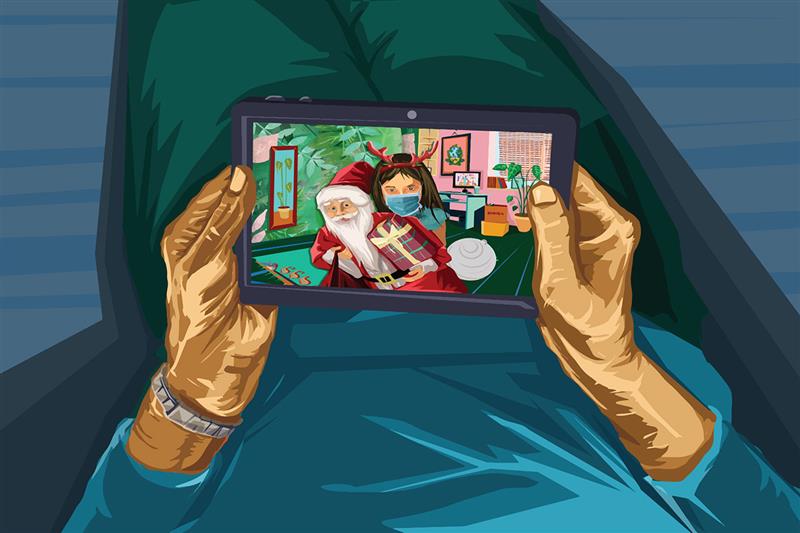The upcoming holiday season will be challenging for many Americans. The coronavirus pandemic is surging — California recently surpassed 1 million known cases — as quarantine fatigue grows. Shorter and colder days are coming, holiday celebrations increase the risk of COVID-19 exposure and post-election shock waves still are rocking the nation.
There’s a lot on everyone’s plate, USC experts agree.
“Call it the winter of discontent, but when it gets cold and dark — in addition to the social and political stresses recently and the threat of pandemic — we’re up against a lot of challenges,” said Lawrence Palinkas, PhD, MA, professor of social work, anthropology and preventive medicine at the USC Suzanne Dworak-Peck School of Social Work.
It’s going to be tough, but Palinkas suggests avoiding in-person holiday gatherings that could become superspreader events. Monitor small children who may healthy but are asymptomatic and could inadvertently spread the disease to a grandparent. And make new memories and innovate holiday celebrations — use Zoom for gift exchanges, cook at home instead of going to a restaurant or downsize holiday gatherings.
“We’re going to need to remain vigilant and prepared, because this winter, the hardest part of the pandemic is yet to come,” he said.
Properly managing winter starts with your body clock
A lot of factors make this a tough time of year — starting with our internal programming.
“Our circadian clock is part of it,” said Steve Kay, PhD, DSc, director of the USC Michelson Center for Convergent Bioscience and Provost Professor of Neurology, Biomedical Engineering and Biological Sciences at the Keck School of Medicine of USC. He notes that the circadian clock affects our metabolism, blood pressure, lung function and immune system. Winter weather — and, this year, the pandemic — keeps people indoors, making it harder to sync biological clocks.
“A key thing people need to do is go outside and get more sunshine because it’s free and good for you,” said Kay, who recommends starting the day with 30 minutes of sunlight to help reset your body clock. He’s also an advocate of abolishing daylight saving time, calling the one-hour seasonal shift bad for health and associated with accidents.
Pandemic numbers soaring as winter arrives
Of course, this year’s dark days come amid the once-in-a-lifetime pandemic — one that’s getting worse, said Paula Cannon, PhD, Distinguished Professor of Molecular Microbiology and Immunology at the Keck School.
“We’re seeing COVID-19 skyrocketing across the country, and the levels are getting out of hand,” she said.
Though many people are understandably tired, Cannon notes that we’re just at the pandemic’s halfway mark. The hardest stretch is ahead. With vaccines still in the distance, it’s important to limit travel, continue physical distancing, wear a face covering and wash your hands regularly. A flu shot is important, too, to help reduce confusion over whether an illness might be the flu or COVID-19.
“The holiday season is the most dangerous time of year, when people are indoors or at holiday get-togethers,” Cannon added. “The chance of being infected — and spreading it to loved ones — is more than ever.”
Planning can help you feel in control of the future
To make the best of it, people need to develop action strategies and remind themselves that they can gain control.
“Winter is coming, and it will be challenging,” said Ashley Uyeshiro Simon, OTD, OTR/L, an associate professor of clinical occupational therapy at the USC Mrs. T.H. Chan Division of Occupational Science and Occupational Therapy.
A good plan includes actions that add joy and purpose to your life, such as worship, family, food, nature, music, shopping and meditation, Simon notes. Build a support structure of friends, families or co-workers to cope with loneliness. And be honest when people ask, “How are you?”
“Students are already lonely, mental health challenges are high, a new wave of COVID-19 and more restrictions are coming, so feelings of loss and loneliness at a time when we’re supposed to be celebrating will be incredibly hard,” she said.
— Gary Polakovic and David Medzerian


